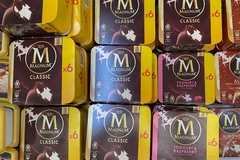
- Industry news
Industry news
- Category news
Category news
- Reports
- Key trends
- Multimedia
- Journal
- Events
- Suppliers
- Home
- Industry news
Industry news
- Category news
Category news
- Reports
- Key trends
- Multimedia
- Events
- Suppliers
Production and Sale of Ractopamine Now Prohibited in China

Ractopamine has been listed in "Banned drugs in feed and the water of animals" in China since 2002. The production and marketing of ractopamine has now also become banned in China, in accordance with the provisions of the State Council. As a synthetic beta-adrenoceptor agonist (nerve stimulant), ractopamine is a feed additive used to promote the leanness of pig meat.

Feb 13 2012 – The People's Republic of China has begun its ban on the production and sale of ractopamine. Ractopamine is a controversial nerve stimulant used to increase the yield of lean meat in pigs. Largely banned internationally, it remains legal in some countries, notably the USA.
The Chinese ministries of Industry and Information technology, agriculture, commerce and health as well as the state administration for industry & commerce, general administration of quality supervision, inspection and quarantine jointly published the ban in a bulletin. Ractopamine has been listed in "Banned drugs in feed and the water of animals" in China since 2002. The production and marketing of ractopamine has now also become banned in China, in accordance with the provisions of the State Council.
As a synthetic beta-adrenoceptor agonist (nerve stimulant), ractopamine is a feed additive used to promote the leanness of pig meat. Ractopamine promotes the growth of muscle tissue, while simultaneously reducing the accumulation of fat in pigs. The drug is often referred to as a new type of "Clenbuterol" with similarities to dopamine hydrochloride and Salbutamol.
Safety regulations concerning ractopamine use for meat production vary around the world. As a veterinary drug, ractopamine is not approved in most countries and using ractopamine is completely banned in 160 countries. The uses of all drugs belonging to the beta-agonist category are specifically banned in the European Union. With a few exceptions for therapeutic purposes, the ban for use in animals for food production in the EU is cited in EC Directive 96/22/EC. Only 24 countries, which include the United States, Canada and Brazil, currently allow the use of ractopamine in livestock. The purpose of using ractopamine is basically to improve the percentage of lean meat obtained from these animals. The maximum residue of ractopamine in swine muscle meat intended for food is limited to 50 ppb in the United States.
With food laboratories worldwide, SGS can test for residues of beta-agonist drugs, including ractopamine.
SGS has the testing capability in China to comply with the national and Ministry of Agriculture standard methods. In addition, SGS can perform the tests, with detection levels as low as 0.01 ppb, for a variety of matrixes, such as meat and poultry products, dairy products and seafood.










